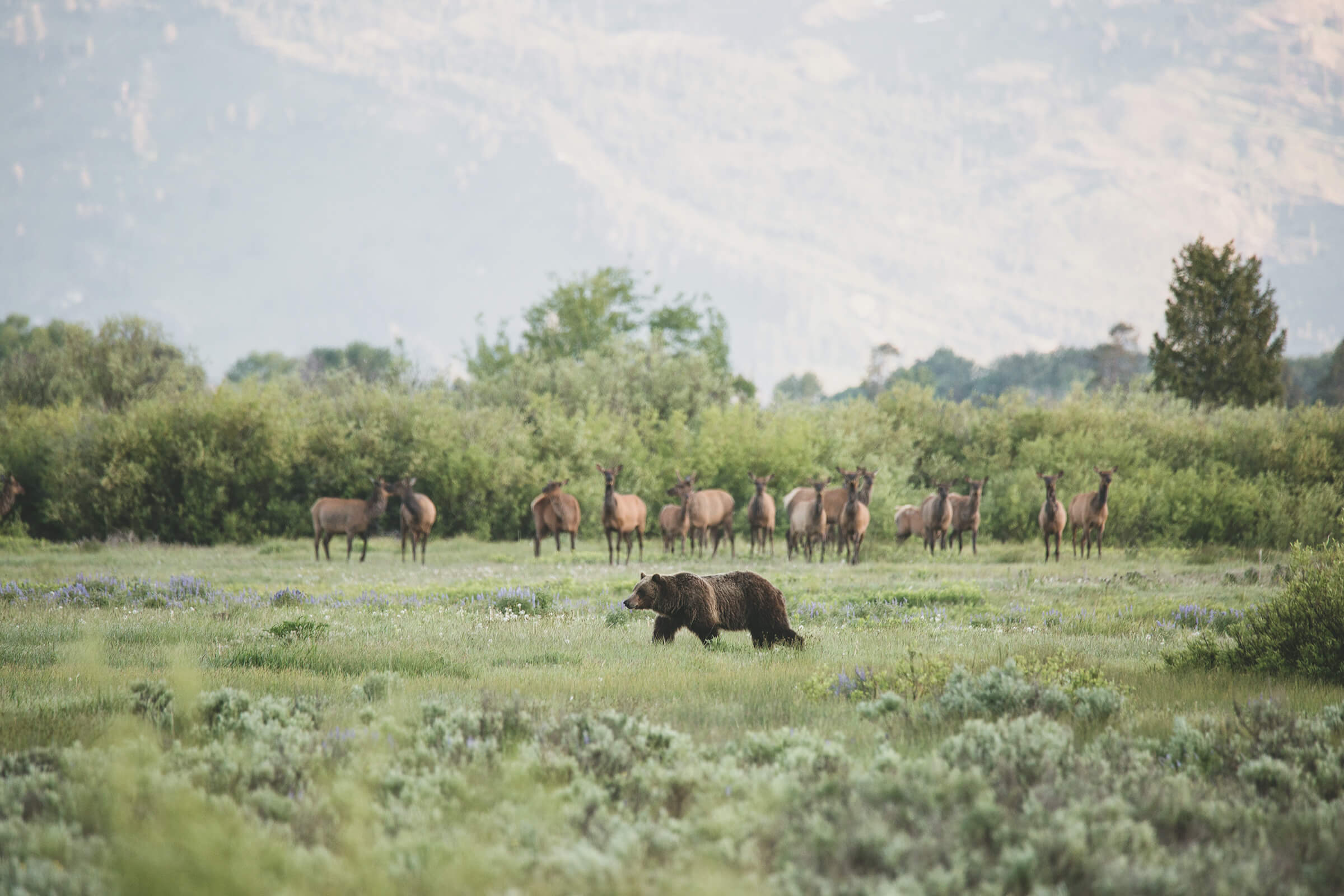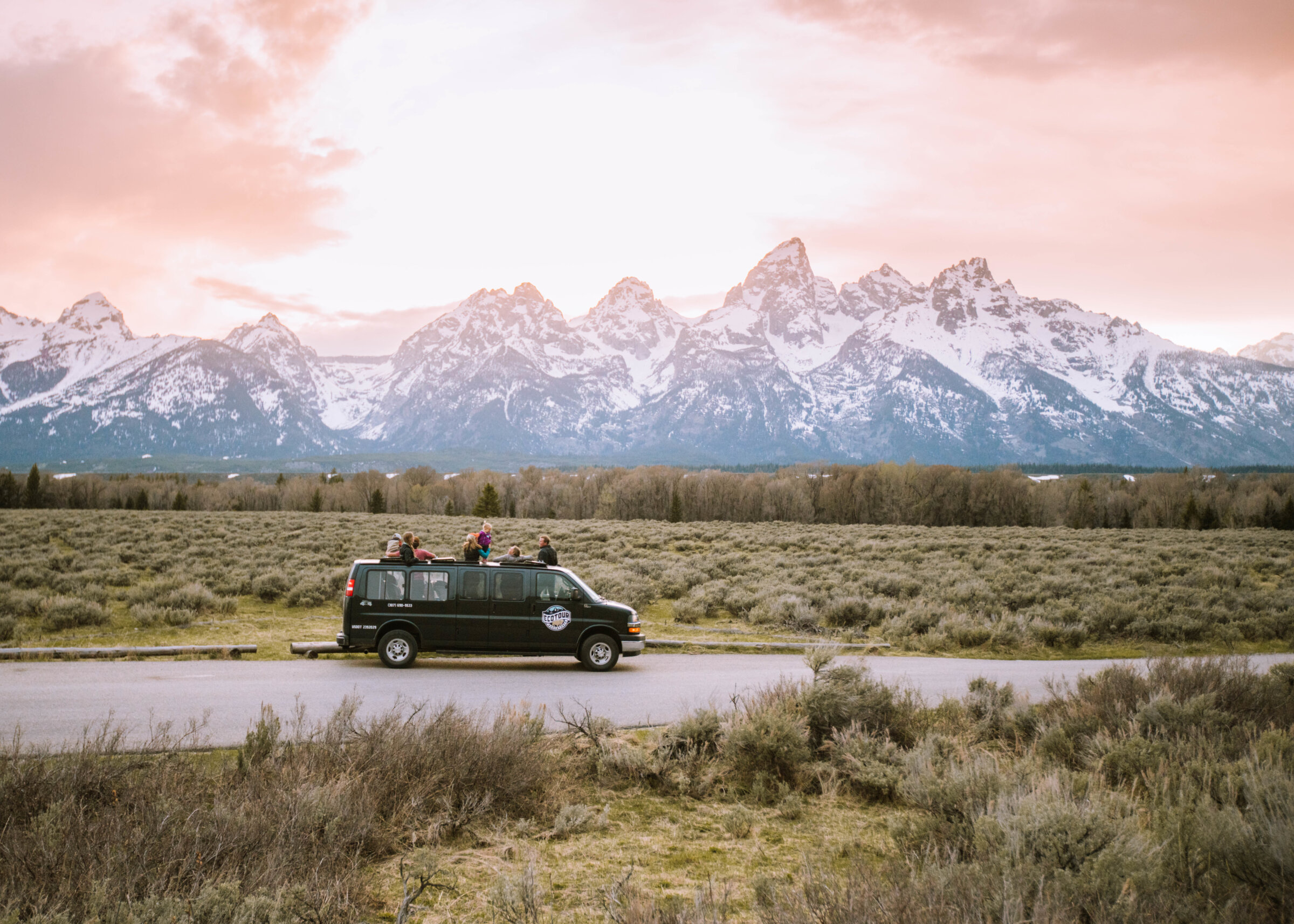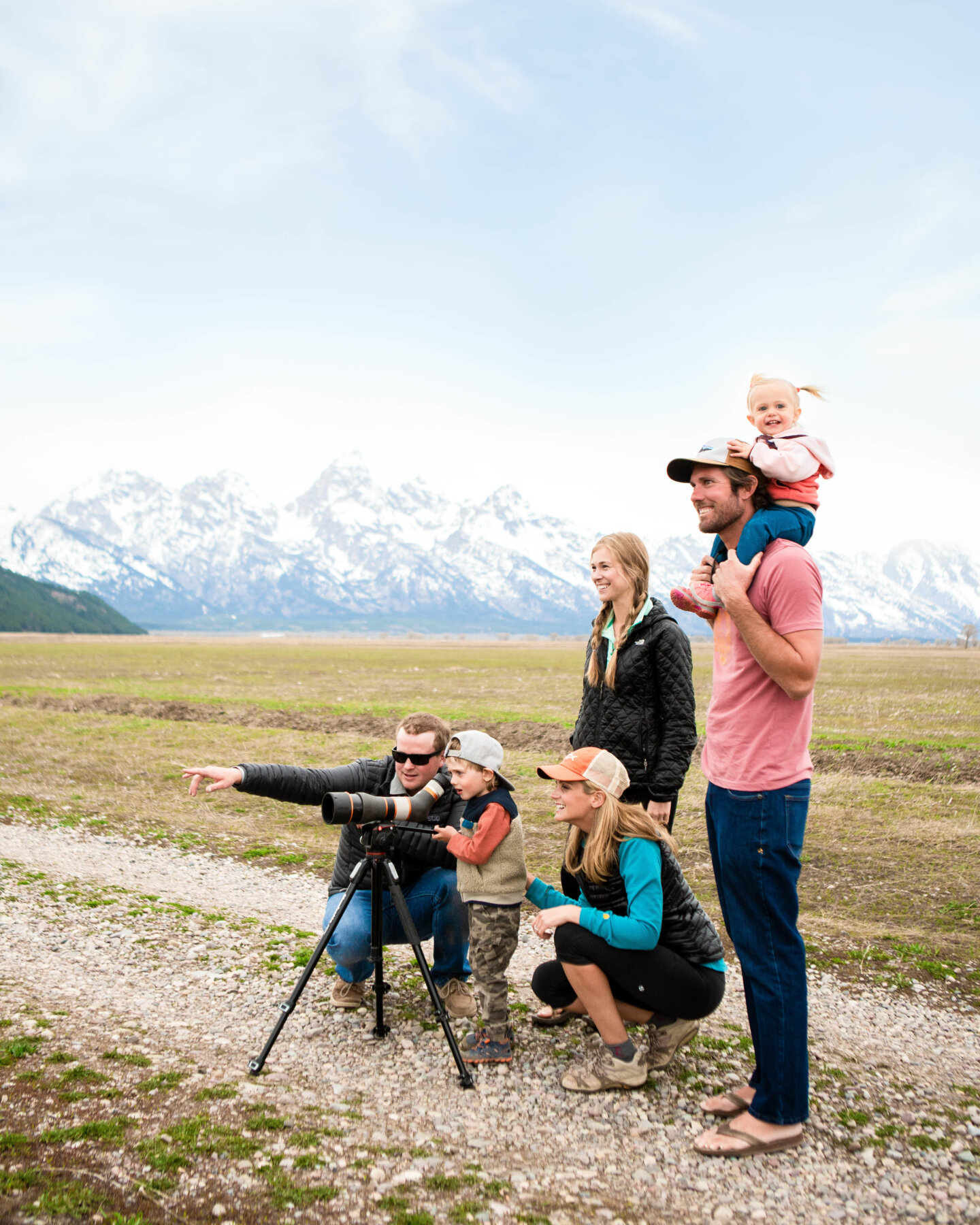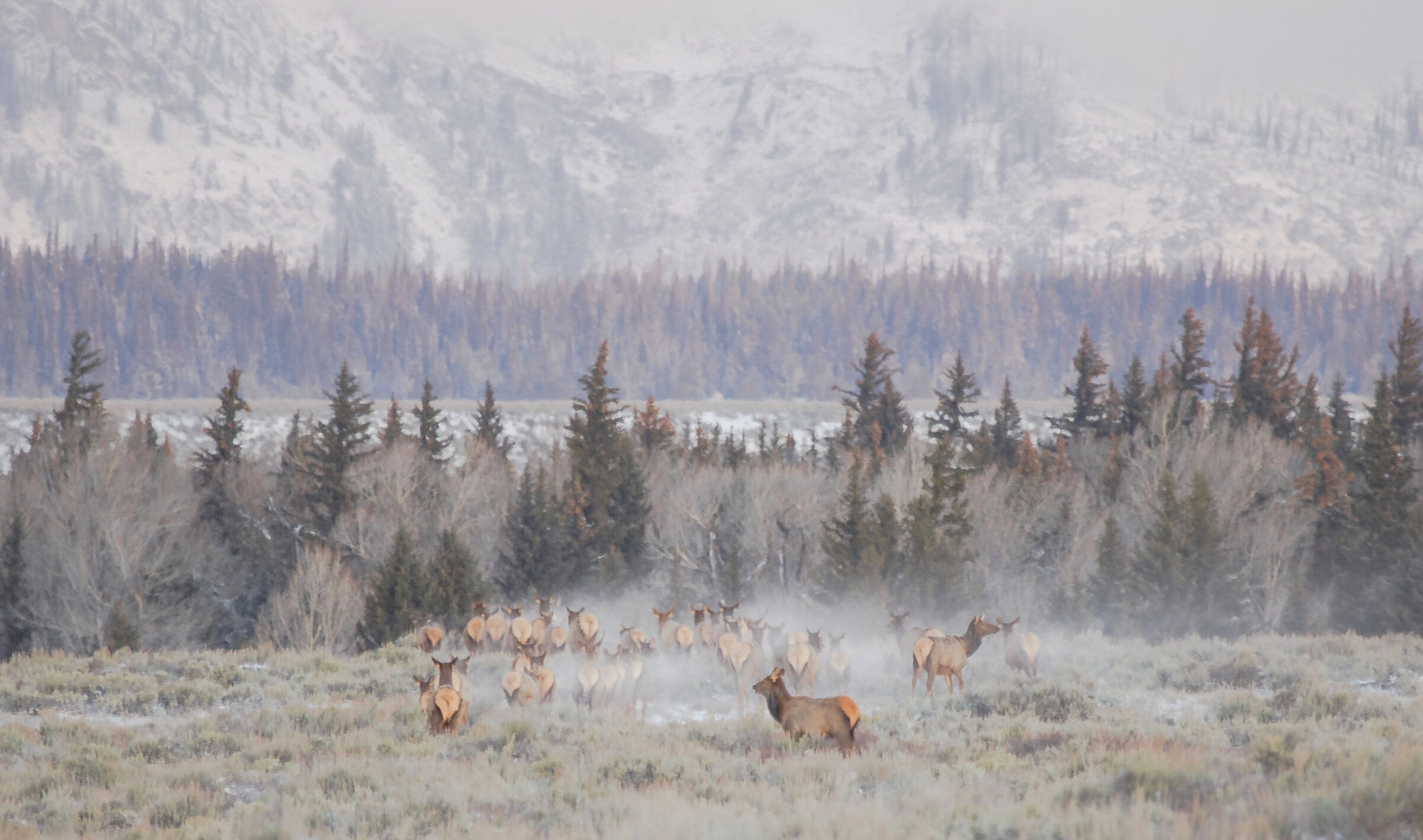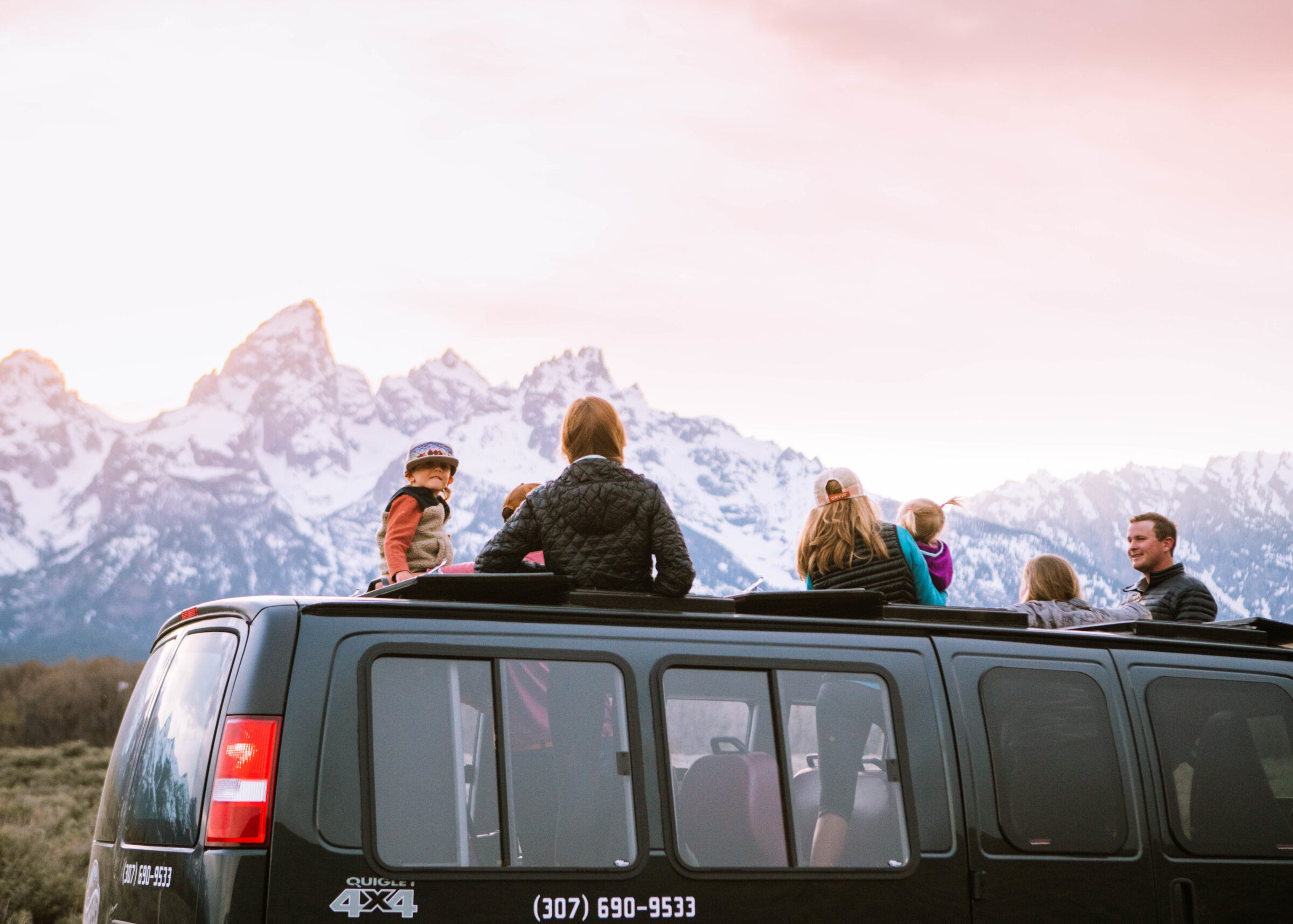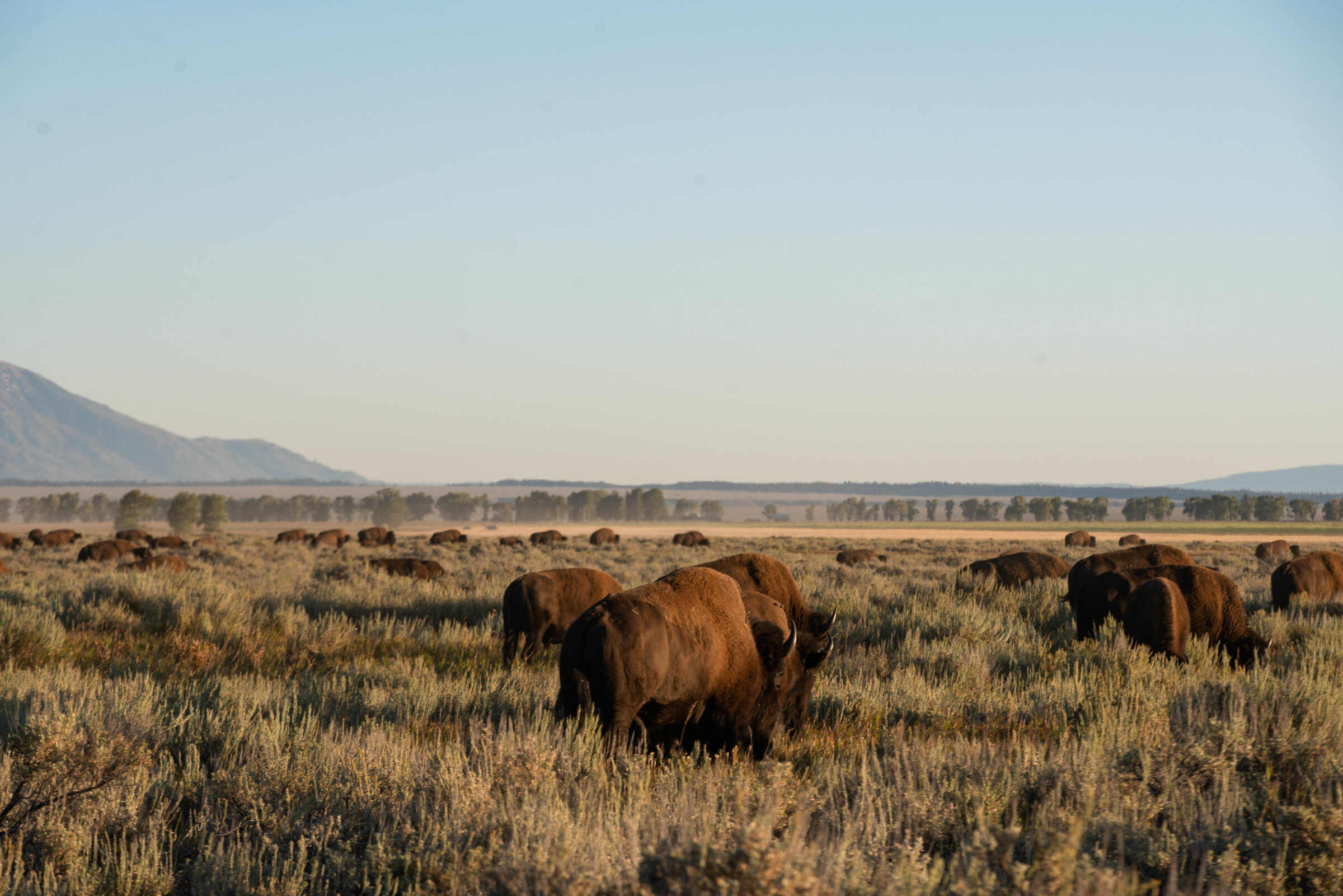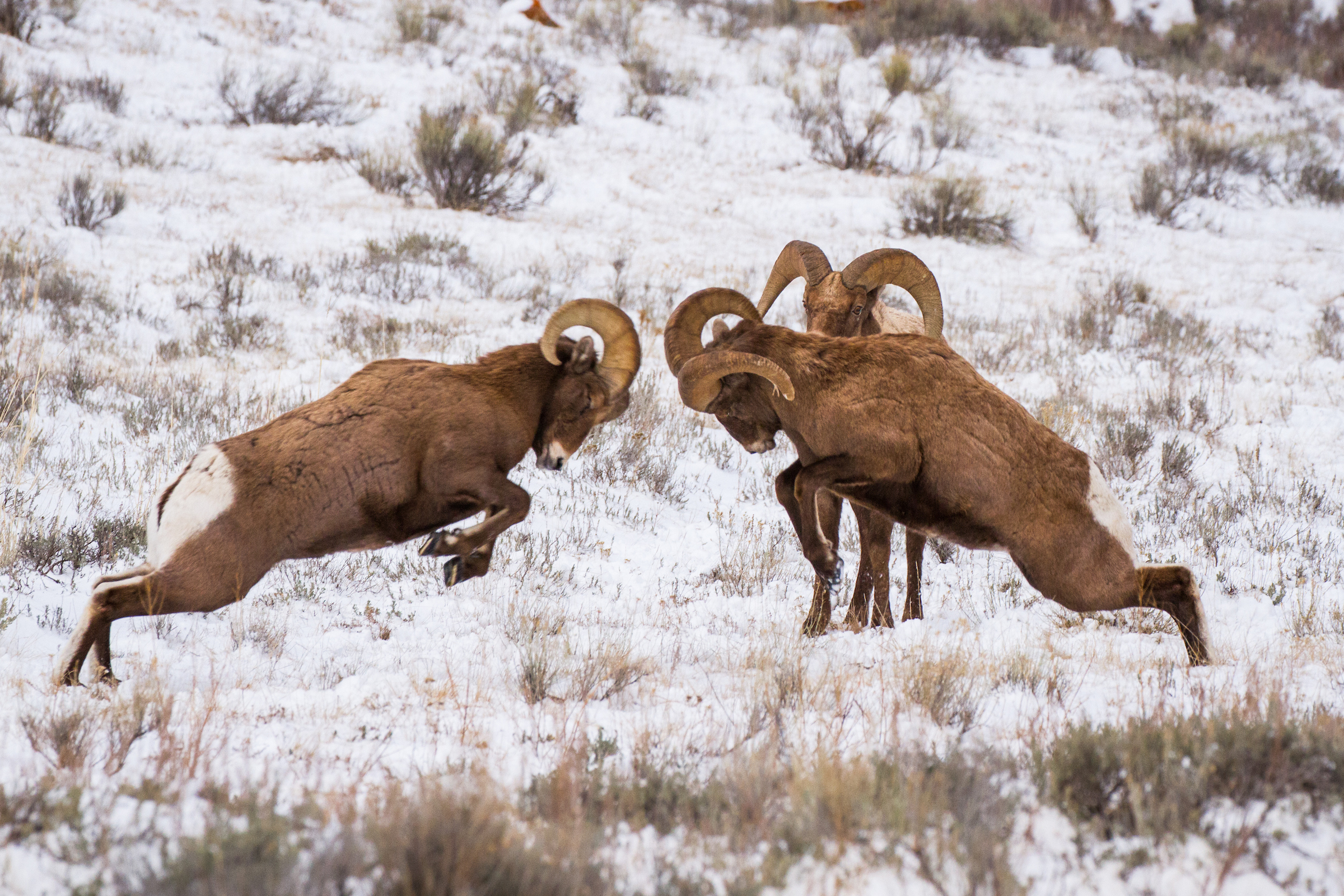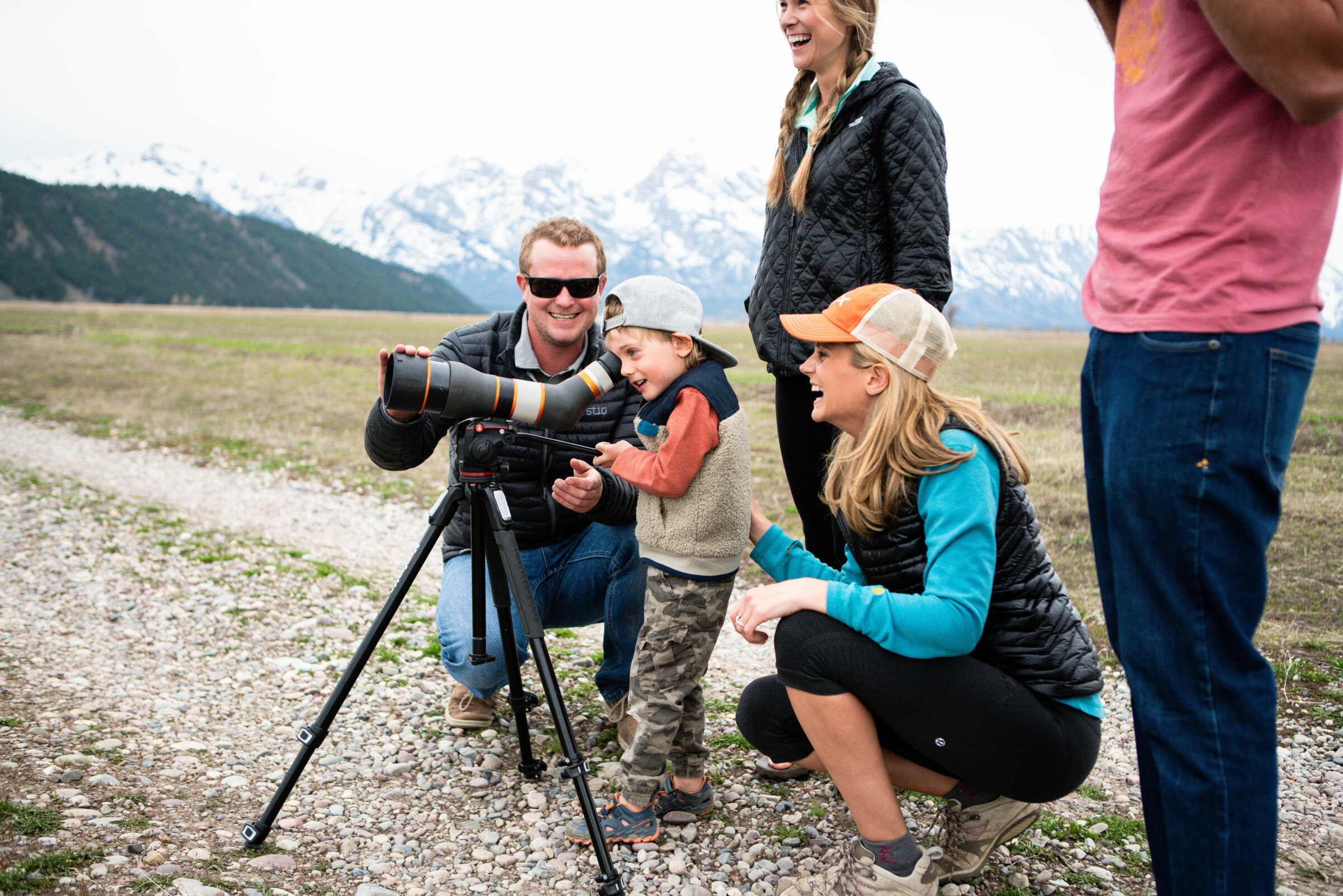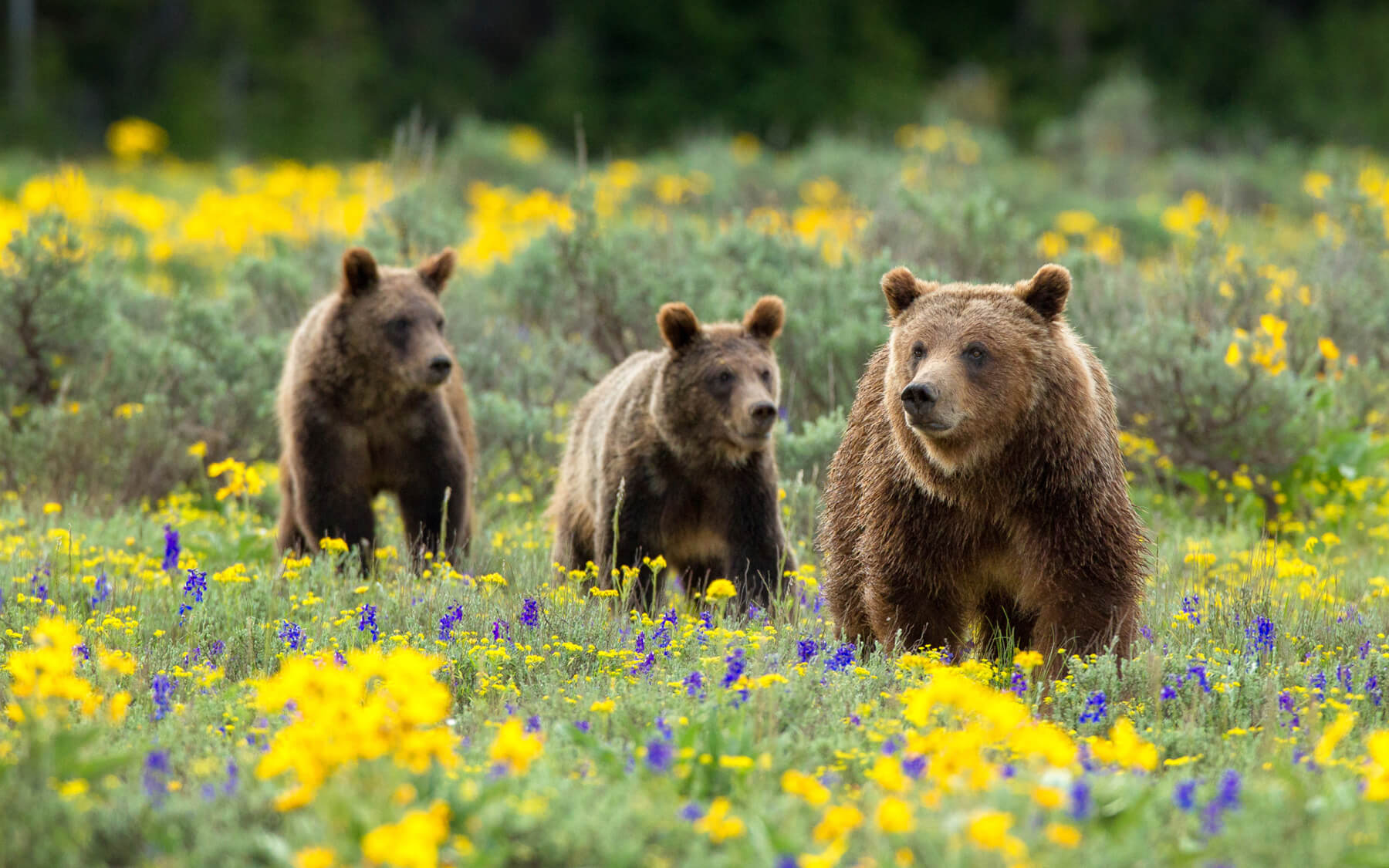Wildlife Tours
Wyoming wildlife, spotted.
Experience the wild side of Jackson Hole on a guided safari.
Jackson Hole is part of the 20-million-acre Greater Yellowstone Ecosystem (GYE), the last intact temperate ecosystem in the lower 48 states. The GYE is the only habitat where the same wild, big-game animals (wolves, elk, deer, bison, moose, pronghorn, bighorn sheep) that roamed this land when Lewis and Clarke first traveled through it are still here today. On a wildlife tour, local guides lead you out of crowded areas to observe and teach you about the many species of wildlife that call Jackson Hole home. In addition to spotting wildlife, guides are experts in local flora and fauna, the history of the area, and conservation efforts. Most importantly, guides ensure you have a safe experience that takes you out of the driver’s seat so you can sit back, relax, and take in the sights.
View Wildlife with Caution
Wildlife are wild and injury, death, fines, and potential jail time are all consequences of getting too close, disturbing, or touching wildlife.
Questions about view wildlife in Jackson Hole
Go with a guide.
Edit FiltersAdventure starts here.
Keep Exploring
